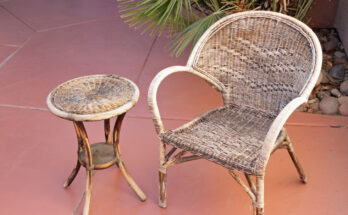Tips To Get Kitchen And Bathroom Towels Clean Together
You start taking shorter showers and keeping a bucket with you to cut down on your water bill. But then while you’re in the middle of sorting your clothes before starting a load of laundry and creating a separate pile for towels, you learn that you shouldn’t wash your kitchen and bathroom ones together. Wondering why? This is because it could lead to cross-contamination. After all, you wouldn’t want the dead skin cells and natural oils from your skin to combine with the greasy, grimy, or stained kitchen towels. So, should you start running two loads for these fabrics alone? Jean Calleja of The Eco Laundry Company, and manager of the @theecolaundry page on Instagram, shared his tips to get kitchen and bathroom towels clean together in an exclusive interview with House Digest.
Although he conceded that it’s better from an hygienic point of view to wash these two separately, he feels like it’s not an eco-friendly decision. “That said, there are ways to successfully balance hygiene with sustainability,” he said. “Running a separate cycle for a single kitchen towel isn’t an environmentally responsible choice — especially when modern machines and detergents can handle mixed loads effectively when used correctly.” When prompted to share the ways homeowners can save time, energy, and water by washing kitchen and bathroom towels together, he elaborated, “The key is how you wash them. If your towels aren’t heavily soiled, and you’re using a good detergent, hot water, and a strong cycle, you’re reducing the risk of bacteria lingering or spreading.”
How to safely and responsibly wash kitchen and bathroom towels together
In case you don’t have the energy or inclination to wash your kitchen and bathroom towels separately, Calleja has a few tips up his sleeve. In his House Digest exclusive, he mentioned that you should first pre-treat grease stains on your kitchen linens with a drop of dish soap. Otherwise, this laundry mistake will make stains worse. Then, use hot water to safely wash the two fabrics together. Explaining the logic behind this advice, he said, “Wash on the hottest temperature your towels can handle. Heat is a natural sanitizer and helps break down oils and bacteria.” But before you start a hot cycle, take a look at the towels’ care labels to ensure this won’t damage their fibers. Another important consideration is to pick the right detergent. He expanded, “Opt for a high-quality detergent with enzymes. These help break down organic matter like food and body oils more effectively.”
However, what if your kitchen towels smell particularly of the homemade pasta sauce you tried your hand at last night? Or, perhaps, you are worried that the after bath oils’ aroma will spread from your bathroom towels to your cooking ones? Whatever the reason, two household ingredients will come to your rescue. Sharing the process, Calleja mentioned, “A cup of white vinegar in the rinse cycle helps neutralize odors and bacteria, while a tablespoon of baking soda in the wash cycle can help lift grease and brighten.” Regarding the wash cycle, he suggested opting for a heavy-duty one: “Towels are bulky and often very absorbent. A longer, stronger wash cycle ensures they’re thoroughly cleaned and rinsed.”
Mistakes to avoid when washing kitchen and bathroom towels together
While following the advice above will get your kitchen and bathroom towels clean together, you might make a few incriminating mistakes along the way. So, we asked Calleja to highlight the most common ones and offer actionable solutions in his House Digest exclusive. He said that the key mistake people make when washing towels is overloading the machine: “Cramming too many towels in one load reduces agitation and water flow, meaning towels come out less clean.” To ensure your fabrics come out dirt, germ, and grease-free, “keep loads moderate so everything gets a thorough wash.”
Another common mistake is using fabric softener. “It might make towels feel soft, but it leaves a waxy coating that reduces absorbency and can trap bacteria,” he said. Distilled white vinegar is a better solution. Also, unless specifically mentioned on your towels’ care label, avoid washing them in cold water. “Cold water won’t sanitize or break down grease as effectively. Unless you’re washing brand-new or delicate towels, use warm or hot water,” he explained. Moreover, littering your bathroom’s floor with wet towels or allowing soggy kitchen linens to sit for days will offer bacteria the perfect breeding ground. “If you can’t wash immediately, hang them up to air out first,” Calleja recommended. And while you’re focused on your towels, don’t completely forget about your washer’s cleanliness. “A dirty washing machine leads to dirty towels,” he said. “Run a maintenance cycle (with vinegar or a washing machine cleaner) at least once a month.”



